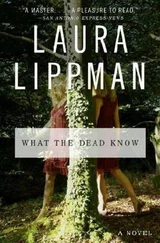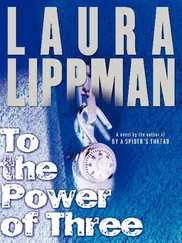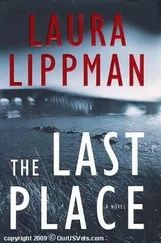“What?”
“The chicken. That’s why I fell. There was a chicken on the steps, trying to peck at my ankles, and all I wanted to do was avoid stepping on it. I twisted my ankle and went over.”
Gwen tries not to show how alarming she finds this. A chicken? There haven’t been chickens in their neighborhood, ever. Except for—but those birds were far away and far in the past. No, that couldn’t be. Her father must have imagined the chicken. But if her father was imagining chickens, what else was breaking down inside his mind? She would almost prefer there was a chicken. Maybe there was. The past few years have seen a flurry of stories about animals showing up in places where they shouldn’t be—wildcats in suburbs, a deer crashing through the window of a dental practice, and, come to think of it, a chicken in one of the New York boroughs. And Dickeyville is the kind of place that has always attracted crunchy granola types. It is easy to imagine some earnest, incompetent locavore trying to raise chickens only to have them escape from his ineptly constructed coop. Gwen will ask around when she goes by the house this afternoon, to begin preparing for her father’s return.
The Robison house is isolated, even by Dickeyville’s standards, which in turn feels cut off from much of Baltimore. It is officially the last house on Wetheredsville Road, only a few feet from where the Jersey wall now blocks the street, marking the start of a “nature trail” that one can follow all the way to downtown. The blocked street means Gwen can’t use the old shortcut, through what is properly called a park, but which she and her childhood friends always referred to as the woods. Their term was more accurate. Leakin Park is a forest, vast and dense, difficult to navigate. Gwen and her friends covered more of it than almost anyone, and even they missed large swaths.
Traffic is surprisingly heavy, the journey longer than anticipated, giving the lie to her blithe words about dashing back and forth between here and the house in Relay. Still, the chance to move to Dickeyville, even temporarily, is providential. Maryland law requires a separation of at least one year to file for an uncontested divorce. She learned this during her first divorce, a sad bit of knowledge she had never planned to use again. Does anyone plan to divorce twice? Then again, after that first failed marriage, the fact is always there, incontrovertible. You’re not going to go the distance with one person, your chance at perfection is lost. For someone like Gwen, who is professionally perfect—she edits a city magazine that instructs others how to have the perfect house, children, wardrobe—this is particularly irksome.
Yet even if she can manage to extend her time in her father’s house for a year, it won’t be enough. It is the spouse who stays who can file after one year, on the grounds of abandonment. As the spouse who is leaving, Gwen will have to wait two years if Karl doesn’t agree, and he has made it clear that he won’t, ever. She can’t spend that much time away from Annabelle, but nor can she afford her own place in their current school district. They aren’t upside down in their mortgage, but they have virtually no equity, and home equity loans are hard to get now, anyway. Karl has lots of money, but, again, he isn’t going to use it to let her leave him. And if she spends even a single night back in the Relay house, the clock resets on the separation. Maybe Annabelle will move into the Dickeyville house and they can keep this information from the school?
But the Dickeyville house will be chaotic, once her father returns. A geriatric specialist should have designed a home that would be friendlier to old age, but his house is downright hostile to the idea. There is the first level, the stonewalled basement, with the laundry room and various systems. Then the large glass-and-timber first floor, built to take advantage of the site, but with only a powder room. Yet the top two floors, with its full baths, have narrow halls and tight corners. Their father, appalled at the spiraling costs and delays, skimped on his dream house’s bedrooms. She will have to set him up in the first-floor “great room,” where he will have nice views and space in which to move, if no bath. But then her father will dominate the first floor, and privacy will be found only in the cramped, dark bedrooms above. And how will he bathe? Besides, Annabelle would be lonely, as Gwen once was, and she won’t even have the freedom to roam the woods. What was considered safe in Gwen’s childhood is unthinkable for Annabelle’s.
Her head hurts. It’s all too complicated. Dial it back, as she tells her writers when they are in over their heads on a story. Concentrate on one thing, one task. Get to the house, make sure it’s clean, do laundry, call a nursing service, let the nursing service figure out the best place for her father to convalesce.
Once there, she finds three newspapers in yellow wrappers, several catalogs, but almost no real mail. Her father doesn’t recycle—on principle, he believes it’s a ruse, an empty, feel-good gesture—so she tosses everything, leaving only the bills on the kitchen counter. The kitchen is small, another victim of the house’s cost overruns, but her mother made it a marvel of efficiency. The light at this time of the day, year, is breathtaking, gold and rose streaks above the hill. Even with the old appliances, the yellowing Formica counters and white metal cabinets, it is a warm, welcoming room.
Gwen goes upstairs. Everything is in order, there is no evidence of a man in decline. Widowed at sixty-three, her father quickly learned to take excellent care of himself. His closet and drawers are neater than Gwen’s, there is an admirable lack of clutter. A single page from the Times, dated the day before his fall, is on his nightstand—the Wednesday crossword puzzle, filled out in ink, without a single error. The puzzle, the tidy house, it all indicates he’s of sound mind and should back up his version of events. So why does she keep thinking of it that way, as a version ? She’s still troubled about that chicken.
Glancing out the narrow casement window toward the street, Gwen sees a black-haired man walking two dogs as black as his hair. She knows him instantly by the part in his hair, impossibly straight and perfect, visible even from this distance.
“Sean,” Gwen calls out through the window. Seconds later, she is running heedlessly down the stone steps that undid her father.
“Gwennie,” he says. Then: “I’m sorry. Old habits. Gwen .”
“What are you doing here?”
“Well—my brother, of course.”
“Tim? Or Go-Go?”
“Gordon,” he says. Perhaps Sean has sworn off nicknames. Funny, Gwen liked hearing Gwennie, even if it always carries the reminder that she was once fat. Gwennie the Whale. She was only fat until age thirteen. They say people are forever fat inside, but Gwen’s not. Inside, she’s the sylph she became. If anything, she has trouble remembering that she’s growing older, that she can no longer rely on being the prettiest girl in the room.
“What’s the incorrigible Go-Go—excuse me, Gordon— done now?”
Sean looks offended, then confused. “I’m sorry, I assumed you knew.”
“My father fell three days ago, broke his hip. I don’t know much of anything.”
“Three days ago?”
“In the morning. Coming down the steps to fetch his paper.”
“Three days ago—that’s when Go-Go …” His voice catches. Sean is the middle brother, the handsomest, the smartest, the best all-around. Gwen’s mother used to say that Tim was the practice son, Sean the platonic ideal, and Go-Go a bridge too far. Gwen’s mother could be cutting in her observations, yet there was no real meanness in her. And her voice was so delicate, her manner so light, that no one took offense.
Читать дальше












